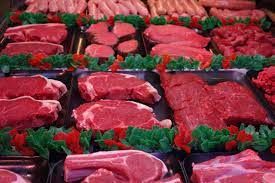
South Africans are switching to cheaper brands to keep meat on the plate, says new report
Cash-strapped South Africans are swapping out their preferred meat brands and products for cheaper alternatives, a new study by Unilever food group's Knorr shows.
Faced with an economy in decline, rising food inflation, and skyrocketing fuel prices, consumers are being forced to tighten their belts – but even so, they are holding on to their meat, the third edition of Knorr's Plate Of The Nation report found.
Consumers have cut out luxuries, the report found. "To manage household expenses, 67% of households are reassessing their spending and sticking to a budget to survive the month."
As much as 66% of households in South Africa manage their grocery expenses by changing brands if the prices on their preferred brands increase.
About 64% of households elect to go for the lowest-priced product within their preferred products as a tactic to keep purchasing their favourite brands.
The Plate of The Nation study, conducted by research house Nielsen and commissioned by packed soup and meal-kit company Knorr, quizzed more than 1,000 South Africans about their eating habits. Respondents were about evenly spread between men and women. It found that South Africans remain staunch meat-eaters, with 89% saying they eat meat.
The typical South African plate is mostly starch, which generally contributes 41% to the meal. Almost a third, 27%, of the plate is usually meat, while 13% consists of vegetables.
There has also been a rise of the flexitarian diet, which increased by 10% in 2022; these individuals are primarily on a vegetarian diet, but eat meat or fish occasionally.
On average, South Africans eat two meals daily, skipping breakfast, and most South Africans eat weekday dinner. During the weekend, more South Africans will indulge in breakfast.
"The report has also found that 83% of young women between the ages 16-24 years, mostly with kids and residing in urban areas snack in between meals, this has increased since 2021 (70%)," the report said.
News Category
- International retailers
- On the move
- Awards and achievements
- Legislation
- Wine and liquor
- Africa
- Going green
- Supplier news
- Research tools
- Retailer trading results
- Supply chain
- Innovation and technology
- Economic factors
- Crime and security
- Store Openings
- Marketing and Promotions
- Social Responsibility
- Brand Press Office
Related Articles

Warning of Eskom collapse

Knorr recalls brown onion gravy sachets

Eskom CEO shares good news about load-shedding

Tax warning for South African businesses


